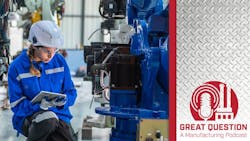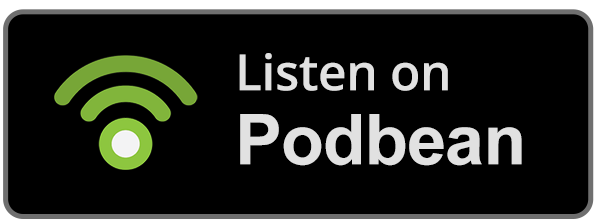Podcast: Operators performing maintenance. Good or bad?
Joe Kuhn, CMRP, former plant manager, engineer, and global reliability consultant, is now president of Lean Driven Reliability LLC. He is the author of the book “Zero to Hero: How to Jumpstart Your Reliability Journey Given Today’s Business Challenges” and the creator of the Joe Kuhn YouTube Channel, which offers content on starting your reliability journey and achieving financial independence. In our monthly podcast miniseries, Ask a Plant Manager, Joe considers a commonplace scenario facing the industry and offers his advice, as well as actions that you can take to get on track tomorrow. This episode offers insight into whether having operators perform maintenance tasks will help or hurt your company.
Below is the transcript of the podcast:
PS: So back in February, we had a discussion, which you said up front, might be perceived that as one of these controversial topics or one where there might be some disagreement. And we talked about who owns reliability. Is it maintenance or is it operations? You very clearly supported that operations owns reliability. If you didn't catch that episode, you should go back and listen. But Joe, your main reasoning, and I've simplified somewhat here, was that maintenance becomes the advisors, and operators are the deciders. Maintenance explains the consequences and the risk of the work, and operators make those decisions. And another good point that I think you made from that episode was that if everyone owns reliability, nobody does so, so somebody needs to own it.
So if operators own reliability, and maintenance does work on equipment and advises operators on risk versus reward, how do you feel about operators doing maintenance? You like to use the metaphor of your car and a mechanic. So who owns the reliability of your car? You do, of course. A mechanic can do maintenance on it for you and can advise you on what you should or shouldn't do, so that makes sense. But I'll tell you, Joe, my husband is a carpenter. He's very handy. He is not a car mechanic, but has worked on most of our cars, and he has saved us a lot of money. Mechanics are very expensive, very much like shutting down operations for maintenance work, or pulling technicians off something else to help tend to an emergency. So does the same metaphor apply here? Can operators who operate that equipment, sometimes for many years, and are the ones who make the ultimate decisions about reliability for that machine, can they also learn to do maintenance activities on equipment? Okay, good or bad? Joe, go.
JK: Yes, it can be a great thing, but I will put a massive asterisk by that—massive. Okay, so I don't want anybody saying, ‘Hey, this is all good, okay?’ Because I've lost. I've made some decisions with operators doing maintenance that has cost me millions of dollars, millions. Okay, one event was over a million dollars, and I'll go into that a little bit.
It's very popular, instance for, to say ‘hey, I've got this trained mechanic. I'm going to have him do some complex things, complicated things, precision work. And let's have the operators change the oil, change the filter, just simple tasks, maybe three or four steps that they can do during the course of their day, while the equipment's running, while they're during doing setup, something like that.’ Very popular. It's like you got a free resource there. A free resource. While the machine is being maintained by mechanics over on the left side of the piece of equipment, you could do some simple PMs on the right side.
But here's the problem, and I'll make this really simple. When mechanics come into work today, and they're given three PMs, that first PM is their number one priority for the day. The second comes when the first one's completed. Then, they go to the second one, then the third one. It's their top priority. At the end of the day, they get those three PMs done. That's a good day. Those are their priorities. Here's the problem. An operator comes in, and his priority is to work safely, operate the machine to make quality product, keep the housekeeping all cleaned up, make the right product in the right order. And if you have time, do the PM. That is a problem because if one thing gets skipped that day, guess what it is? It's the lubrication of the machine. It's the changing of the filter, and that is a huge issue. It is not their number one priority of the day, and it slips. There's something called drift, where you train 10 people to do a job. ‘Hey, do this every day.’ A week later, eight of them are doing it. Two weeks later, five of them are doing it. It can be a massive problem.
Okay. Now, how do you fix that? It's not too hard to fix, but most people skip this step. They just say, ‘hey, operator, lubricate that once a shift.’ You’ve got to have some sort of audit. How do you know that that's being done? For mechanics, you've got the CMMS. You've got the completed work order. Okay, so it shows up. It's complete. They completed those three PMs that I was talking about earlier. With operators, typically, there's no paperwork to do it.
So one best practice is, if you're going to have the operators do some maintenance, put that in the CMMS, put it in as a task and have them close it out. Have the supervisor, have somebody close it out. You have to have a process in there to check that it’s being done. One hundred percent of the plants that I've gone into that we're doing some operator maintenance—sometimes people call it TPM, sometimes it's called operator care—100% of the plants I've been into, they've experienced significant drift. I go in and they say, ‘operators do this care. Maintenance does this care?’ I have never seen a plant that got above a C score, A-B-C score, never. So I like the concept, but I honestly have never seen it applied to excellence.
That's not saying you can't do it, but people just want to say ‘hey, shift these tasks to these operators, they're not doing anything.’ And it's going to be their 10th priority the day. What can go wrong? I'm telling you, I had my example. I worked at a power plant in the combustion air blowers, big blower. Operations was supposed to add lubrication to it, supposed to be a check every day, and then top it off to a certain level. With drift over the course of a year, we had a big failure, and then the fan wasn’t a million dollars. It was the power. We had to shut down the unit, and the power that we had to buy happened to be on 102-degree day and cost us a lot of money. Instead of generating electricity, we had to buy electricity so tread cautiously.
PS: Okay, yeah, I think it's very easy to say every facility is different. It depends on your operations. It depends on your project and your staff, etc. And to some extent, that's probably true, but I think you're very good at drawing those black and white lines, rather than muddling around in the gray areas. You may have an operator that can do it, but again, do you have that process in place to document that? I like that term drift. I think that could probably apply across many different things, but everyone's drifting away from their priorities and their responsibilities when you start doing things that aren't what you should be doing. And again, if you don't have that process in place for documenting it, it's going to come back and get you in the end.
JK: I thought of another example where plants get into trouble is they'll say, ‘Hey, Joe, the operator. You lubricate this machine. You're the most experienced operator. You know how to do this job. Joe, you do it.’ And then everybody is happy. And then, Joe retires, or Joe goes out on some medical leave for three months. The machine doesn't get lubricated for three months and it fails. I wish I had $1 for every time that has happened to me over the last 35 years.
PS: Yeah, the brain drain is a good point too for sure, and how the workforce is developing and changing very quickly, absolutely.
About the Podcast
Great Question: A Manufacturing Podcast offers news and information for the people who make, store and move things and those who manage and maintain the facilities where that work gets done. Manufacturers from chemical producers to automakers to machine shops can listen for critical insights into the technologies, economic conditions and best practices that can influence how to best run facilities to reach operational excellence.
Listen to another episode and subscribe on your favorite podcast app
About the Author

Anna Townshend
managing editor
Anna Townshend has been a journalist and editor for almost 20 years. She joined Control Design and Plant Services as managing editor in June 2020. Previously, for more than 10 years, she was the editor of Marina Dock Age and International Dredging Review. In addition to writing and editing thousands of articles in her career, she has been an active speaker on industry panels and presentations, as well as host for the Tool Belt and Control Intelligence podcasts. Email her at [email protected].
Joe Kuhn
CMRP
Joe Kuhn, CMRP, former plant manager, engineer, and global reliability consultant, is now president of Lean Driven Reliability LLC. He is the author of the book “Zero to Hero: How to Jumpstart Your Reliability Journey Given Today’s Business Challenges” and the creator of the Joe Kuhn YouTube Channel, which offers content on creating a reliability culture as well as financial independence to help you retire early. Contact Joe Kuhn at [email protected].





